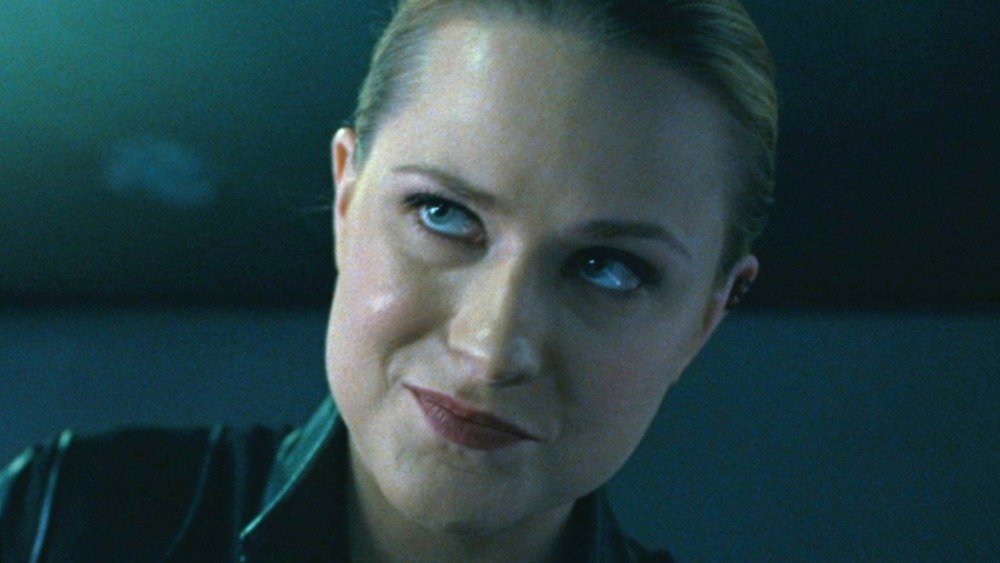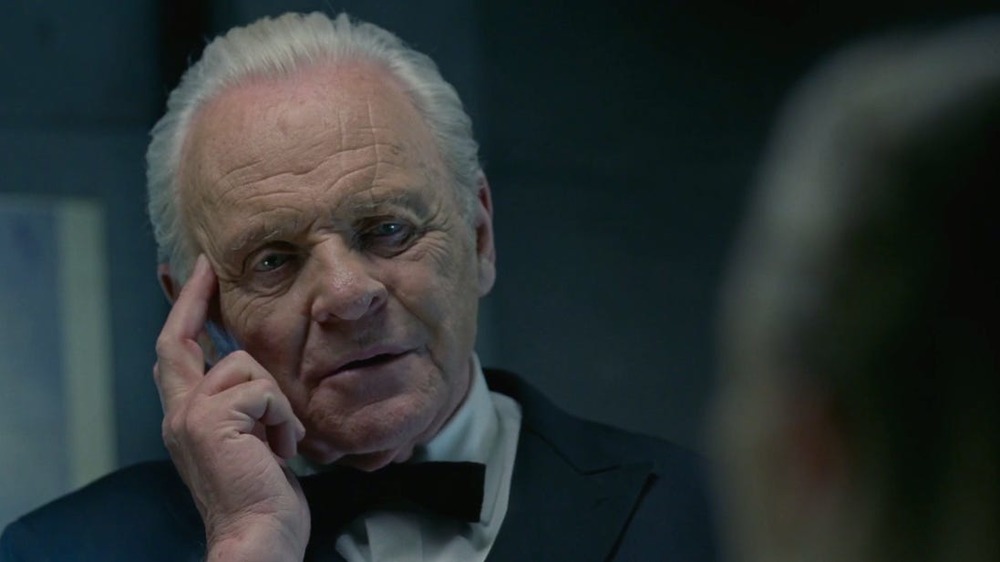The Biggest Unanswered Question From Westworld Season 3
In 2016, audiences gawked in awe as all of the "who's a secret robot" mystery of Battlestar Galactica was transplanted into a program with the relatability of anything besides Battlestar Galactica. The result: Westworld, the HBO reimagining of Michael Crichton's low-budget 1973 science fiction thriller. Springing from the minds behind Pushing Daisies and Interstellar, the show's unreliable narration and Gordian knot of a timeline dared audiences to ask "...what?"
Three seasons later, we're all still asking. Short of winning an afternoon with Johnathan Nolan and a bottle of No-Doz, getting a firm grasp on Westworld's entire story is a Sisyphean task, roughly as difficult as trying to solve a maze tattooed to the inside of a robot's scalp when the maze is actually an allegory and you're secretly Jimmi Simpson. By the end of the show's third season, we've learned that society is run by a supercomputer, William has probably been replaced by a robot duplicate, Dolores is about as dead as anyone can be in this universe, and somebody needs to vacuum Bernard. Questions abound. How long has Bernard needed to be vacuumed? What's society's ultimate fate, alluded to in bleak conversations? How much longer can we draw out Maeve's search for her daughter?
But there's one question that towers above the others — one with the potential to change the way that fans experience Westworld, moving forward and retroactively: Just how much of what we've seen was part of Robert Ford's plan all along?
Let me know when the electric sheep stop dreaming, Clarice
Robert Ford was the mysterious, string-pulling, dapper driving force behind Westworld's first season. He oversaw every event, slowly pushing the pieces into place with enigmatic charisma and a knowing smile, only to eventually be killed on his own orders. He was like Albus Dumbledore if he'd gone into the private sector and built robots for people to have sex with.
Out of the many big reveals at the end of season 1, Ford's Machiavellian control and near-godlike perspective were some of the most striking. Even after his death, the park's founder stuck around for a minute in host form to rub it into William's face that he'd been masterminding everything.
But just how long was Ford's reach, and how far did his plans extend? Did his ambitions begin and end with freeing the hosts to live independently, or were the stories in season 3 part of his scheme all along? Did he want humans freed from the influence of Incite's quantum computers? Or was releasing the park's robots nothing more than a final mea culpa and submission to chaos for a man whose life was defined by control?
Details are still scarce, but we know that Westworld will be returning for a fourth season in the not-too-distant future. Maybe fans will finally get a little more insight into Ford's intentions. Then again, maybe that particular maze was never for us.

